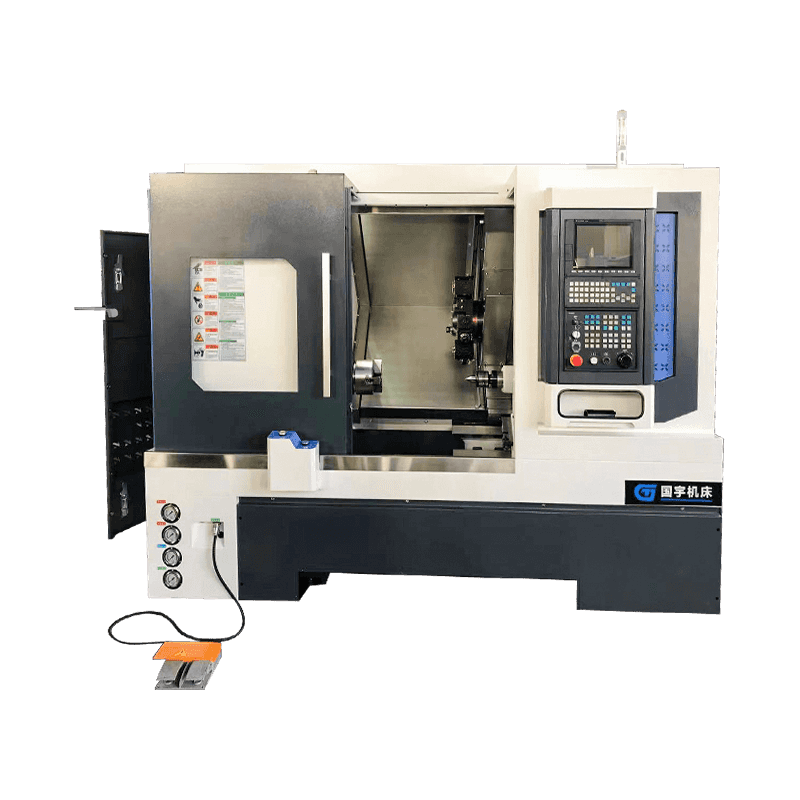Technical Characteristics: It can cut all kinds of turning surfaces by bicycle, such as conical surf...
See DetailsCNC Swiss turning machines have revolutionized the world of precision machining, especially in industries that demand high accuracy and intricate part designs. These machines are vital for producing small, complex components that require tight tolerances, smooth surfaces, and high efficiency.

The process of Swiss turning is different from traditional turning because the workpiece is fed into the machine from a guide bushing, which holds the part tightly in place as it rotates. This design significantly reduces deflection and vibration, ensuring that the tools can cut with accuracy.
A CNC Swiss turning machine typically features several key components:
Guide Bushing: A key feature in Swiss machines that holds the workpiece in place, reducing deflection and providing stability during machining.
Rotary Tooling: Swiss machines often have multiple rotary tool heads that allow for machining on both the front and back of the part simultaneously, increasing efficiency.
Multiple Axes: Swiss turning machines can have up to 7 or more axes, allowing for complex shapes and contours to be produced in a single setup.
Live Tooling: CNC Swiss turning machines often incorporate live tooling, which enables drilling, milling, and tapping operations while the part is rotating, eliminating the need for secondary operations and reducing cycle time.
This combination of features allows CNC Swiss turning machines to perform high-speed, precision machining on small parts with remarkable efficiency and minimal need for manual intervention.
CNC Swiss turning machines are suited for producing parts that require high precision, complex geometries, and surface finishes. The following products are particularly well-suited for CNC Swiss turning processes:
The medical device industry requires parts that meet stringent tolerances and can perform reliably in highly sensitive applications. CNC Swiss turning machines are ideal for producing medical components such as:
Needles and Cannulas: The small diameter and complex features of medical needles require the precision that Swiss turning provides. The ability to create sharp, accurate tips with smooth surfaces is crucial for ensuring the effectiveness and safety of medical instruments.
Surgical Tools: CNC Swiss turning machines are used to manufacture surgical tools with tight tolerances and clean finishes, such as scalpels, forceps, and implants. The ability to handle small components with intricate geometries is a key benefit of Swiss turning technology.
Implants and Prosthetics: Components like orthopedic implants, dental implants, and custom prosthetics require precision machining, often in materials like titanium or stainless steel. CNC Swiss turning machines can achieve the fine tolerances and surface finishes needed for these critical parts.
Aerospace manufacturing involves creating parts that must withstand conditions while meeting strict safety regulations. CNC Swiss turning machines are commonly used in the production of aerospace components, including:
Small Structural Parts: Parts such as brackets, fasteners, and fittings used in aircraft assembly are often machined using CNC Swiss turning machines. These components require high precision and the ability to work with tough, lightweight materials like aluminum and titanium.
Turbine and Engine Parts: Certain small, intricate parts for turbine engines or aircraft engines require fine detail and a smooth finish, which CNC Swiss machines are capable of producing. These parts often need to meet very tight tolerances to ensure that they perform reliably under conditions.
Our team of digital and business experts will guide you to the right direction.
Let's Talk